
Llogara National Park: Albania's Scenic Alpine Retreat
Llogara National Park, located in southwestern Albania, is a stunning alpine retreat that offers visitors a mix of lush forests, high mountain peaks, and breathtaking vistas. The park is part of the Ceraunian Mountains and covers an area of 1,010 hectares, making it a haven for nature lovers and adventure seekers alike. One of the main attractions of the park is the Llogara Pass, which sits at an altitude of 1,043 meters. From here, you can enjoy panoramic views of the Ionian Sea and the Albanian Riviera. The pass is also a popular spot for paragliding, offering an unforgettable experience of soaring above the mountains and sea. The park is home to a diverse range of flora and fauna. You will find dense pine forests, oak trees, and a variety of wild herbs and flowers. Wildlife enthusiasts can spot deer, foxes, and even wild boars. Bird watchers will be delighted with sightings of eagles, falcons, and other bird species. For those who enjoy hiking, Llogara National Park offers several well-marked trails that cater to different skill levels. These trails take you through the heart of the park, allowing you to explore its natural beauty up close. There are also picnic areas where you can relax and take in the serene surroundings. In addition to its natural attractions, the park is also home to several historical and cultural sites. The nearby village of Dhermi is worth a visit for its charming stone houses and ancient churches. The park also hosts various festivals and events throughout the year, providing visitors with a chance to experience local traditions and culture.
Local tips in Llogara National Park
- Best time to visit is from late spring to early autumn, when the weather is mild and the trails are most accessible.
- Bring comfortable hiking shoes and warm clothing, as temperatures can drop significantly at higher altitudes.
- Pack a picnic and enjoy it at one of the designated areas within the park for a relaxing break.
- Don't forget your camera – the views from Llogara Pass are truly spectacular and worth capturing.
- Check local guides for information on paragliding opportunities for an adventurous experience.
- Visit nearby villages like Dhermi for a taste of local culture and history.
Llogara National Park: Albania's Scenic Alpine Retreat
Llogara National Park, located in southwestern Albania, is a stunning alpine retreat that offers visitors a mix of lush forests, high mountain peaks, and breathtaking vistas. The park is part of the Ceraunian Mountains and covers an area of 1,010 hectares, making it a haven for nature lovers and adventure seekers alike. One of the main attractions of the park is the Llogara Pass, which sits at an altitude of 1,043 meters. From here, you can enjoy panoramic views of the Ionian Sea and the Albanian Riviera. The pass is also a popular spot for paragliding, offering an unforgettable experience of soaring above the mountains and sea. The park is home to a diverse range of flora and fauna. You will find dense pine forests, oak trees, and a variety of wild herbs and flowers. Wildlife enthusiasts can spot deer, foxes, and even wild boars. Bird watchers will be delighted with sightings of eagles, falcons, and other bird species. For those who enjoy hiking, Llogara National Park offers several well-marked trails that cater to different skill levels. These trails take you through the heart of the park, allowing you to explore its natural beauty up close. There are also picnic areas where you can relax and take in the serene surroundings. In addition to its natural attractions, the park is also home to several historical and cultural sites. The nearby village of Dhermi is worth a visit for its charming stone houses and ancient churches. The park also hosts various festivals and events throughout the year, providing visitors with a chance to experience local traditions and culture.
When is the best time to go to Llogara National Park?
Iconic landmarks you can’t miss
Butrint National Archaeological Park
Explore ancient ruins and stunning nature at Butrint National Park, a UNESCO World Heritage Site in Albania with a rich Mediterranean history.
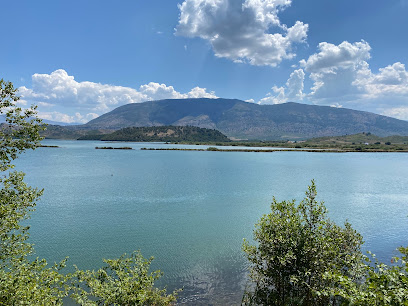
The Blue Eye
Discover the mesmerizing Blue Eye of Albania, a natural spring with stunning turquoise waters and lush forest surroundings. A must-see destination!
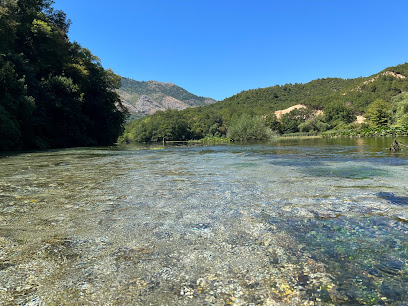
Berat Castle
Discover the captivating beauty of Berat Castle, a historical fortress offering stunning views and a rich blend of cultural heritage.
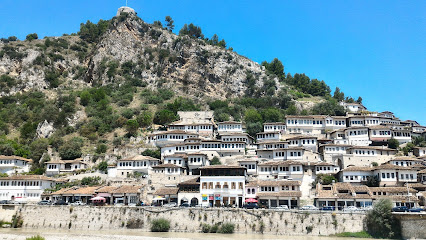
Theth National Park
Discover the breathtaking beauty of Theth National Park in the Albanian Alps: Hike through stunning landscapes and experience rich cultural heritage.
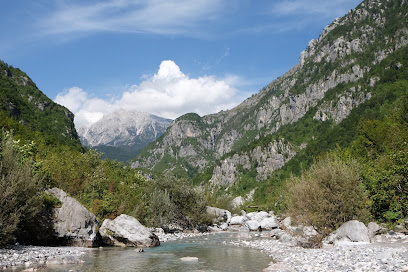
Dhërmiu Beach
Experience the allure of Dhërmi Beach: turquoise waters, vibrant nightlife, and stunning mountain views on the Albanian Riviera.
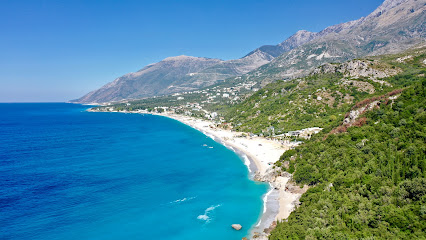
Ancient Theatre
Explore the remarkably preserved Ancient Theatre of Butrint, a window into Greek and Roman civilization within a stunning natural setting.
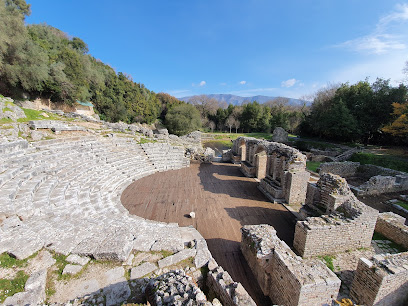
Apollonia, Qyteti Antik Ilir
Discover Apollonia: Explore ancient Greek & Roman ruins in Albania's largest archaeological park. A journey through history awaits!
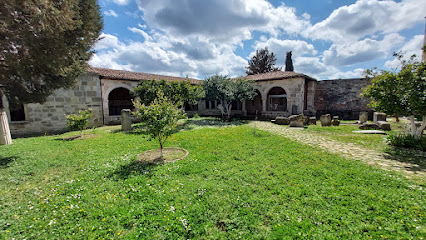
Valbona Valley National Park
Discover the untouched beauty of Valbona Valley National Park: Hike through dramatic peaks, explore pristine meadows, and experience the Albanian Alps.
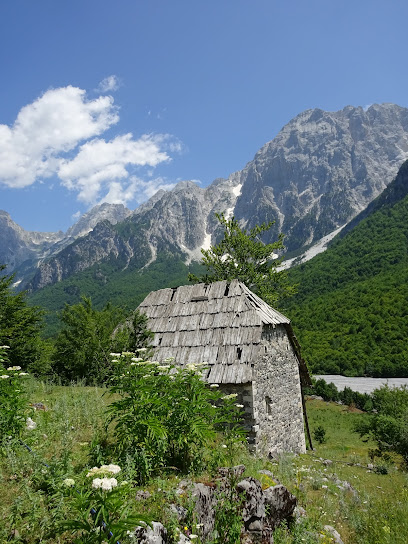
Panorama Llogara
Breathtaking panoramic views of the Albanian Riviera from the famed Llogara Pass, a must-see stop for unforgettable memories.
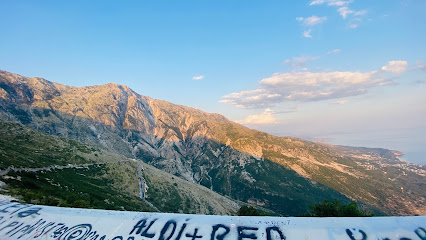
Gjipe Beach
Discover Gjipe Beach: A pristine Albanian Riviera paradise with turquoise waters, dramatic canyons, and a serene escape from the crowds.
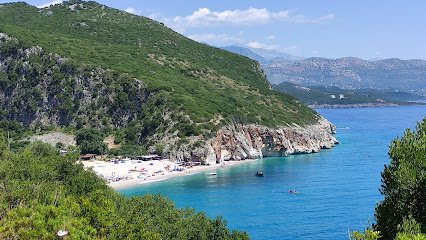
Livadhi Beach
Experience the allure of Livadhi Beach in Himarë: turquoise waters, golden sands, and stunning mountain views await on the Albanian Riviera.
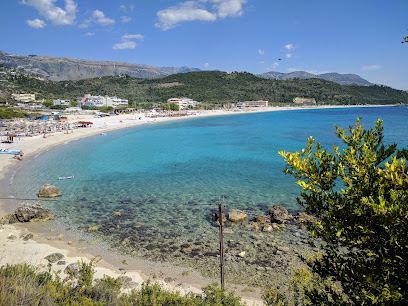
Plazhi i Borshit
Discover Plazhi i Borshit, the longest beach on the Albanian Riviera, offering a tranquil escape with stunning views and crystal-clear waters.
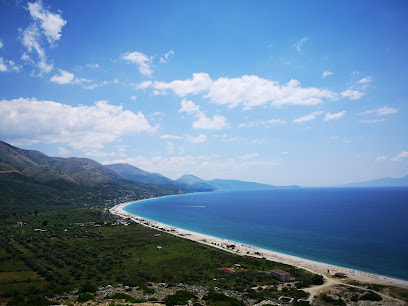
St. Mary's Monastery
Discover a serene Byzantine monastery on a picturesque island in Albania's Narta Lagoon, offering history, culture, and natural beauty.
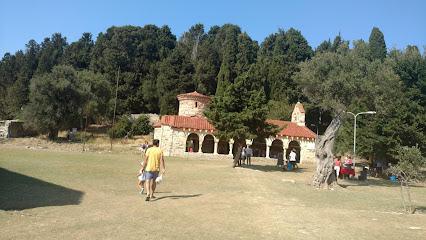
Jale Beach
Discover Jale Beach: where crystal-clear waters meet vibrant Albanian Riviera scenery, offering relaxation and adventure in a stunning setting.
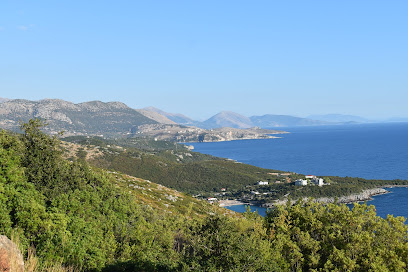
Llogora Tourist Village (TE’DRERI)
Escape to Llogora Tourist Village: A serene mountain retreat in Llogora National Park with stunning views and Albanian hospitality.
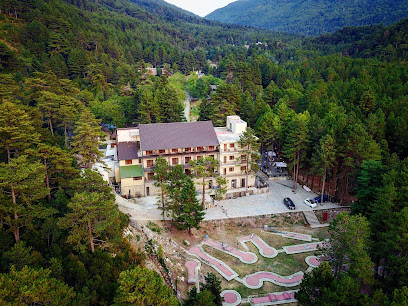
Unmissable attractions to see
Palermo Beach
Discover the serene beauty of Palermo Beach in Himarë, Albania: clear waters, local charm, and historic Porto Palermo Castle await!
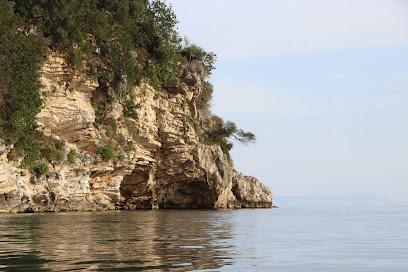
Qeparo Beach
Discover Qeparo Beach: a serene Albanian Riviera escape with stunning sunsets, clear waters, and a charming blend of relaxation and exploration.
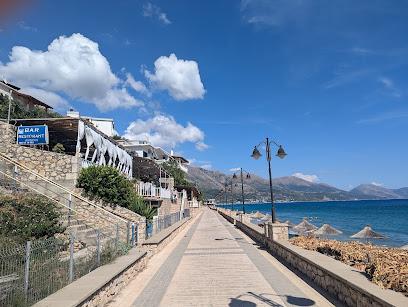
Lukova Beach
Escape to Lukova Beach: Discover tranquility and natural beauty on the Albanian Riviera's serene shores.
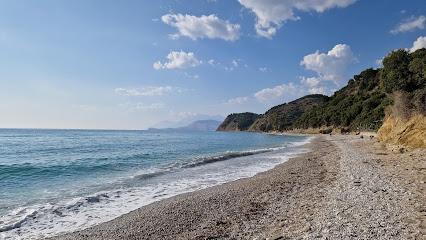
Mount Çika
Hike Albania's Mount Çika for breathtaking Ionian Sea views, diverse flora, and a challenging adventure in Llogara National Park.
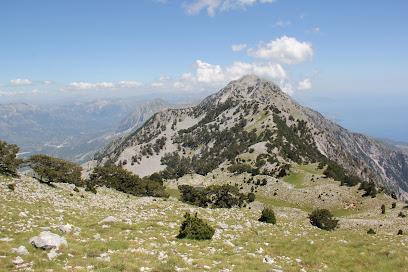
Sant Andreas Bay
Discover Sant Andreas Bay: Albania's hidden coastal paradise with crystal-clear waters, stunning scenery, and a tranquil escape.
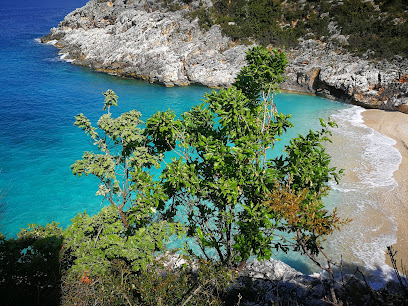
Vlorë Belvedere Vänginz
Experience breathtaking panoramic views of Vlorë and the Adriatic Sea from this captivating scenic viewpoint, perfect for relaxation and photography.
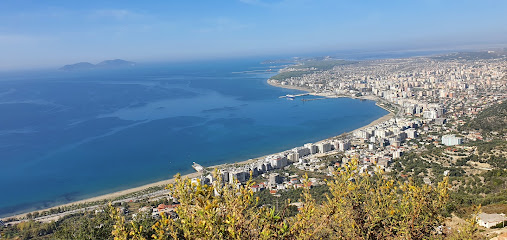
The wall ruins of the ancient city of Aulon ( VLORË)
Explore the ancient wall ruins of Aulon in Vlorë, Albania, and step back in time to discover the rich history and stunning coastal views of this historical landmark.
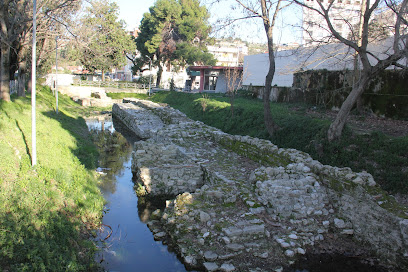
Wild beach
Discover Wild Beach in Vlorë: A pristine Albanian coastline offering tranquility, natural beauty, and a serene escape from the everyday hustle.
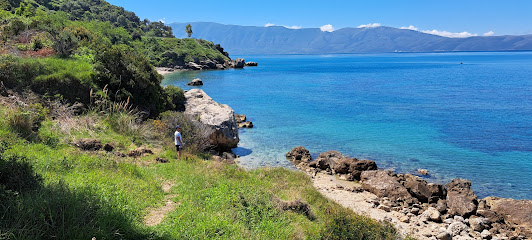
Church of the Intercessor
Discover the serene beauty and rich Orthodox heritage of the Church of the Intercessor in Labovë e Madhe, Albania.
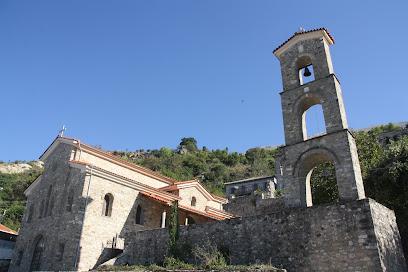
Pisha Flamur
Discover Pisha Flamur: A wind-sculpted natural monument in Llogara National Park with stunning views of the Albanian Riviera.
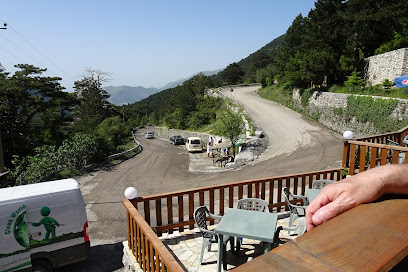
Varri i Ismail Qemalit
Pay respects to Albania's founding father, Ismail Qemali, at his tomb in Vlorë, a site of national significance and remembrance.
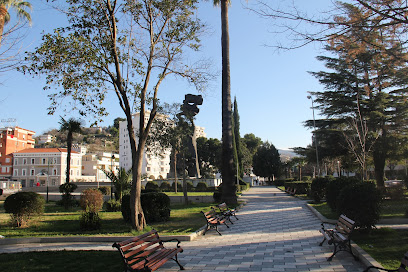
Orikum, Kaltersia beach
Discover the serene beauty of Kaltersia Beach in Orikum, Albania, where golden sands meet crystal-clear waters for the perfect coastal getaway.
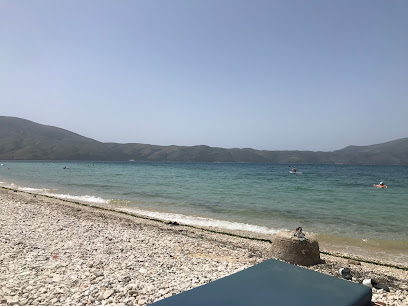
Kanine
Explore Kaninë Castle near Vlorë: a historic fortress with stunning views of the Albanian Riviera and a rich, multi-layered past.
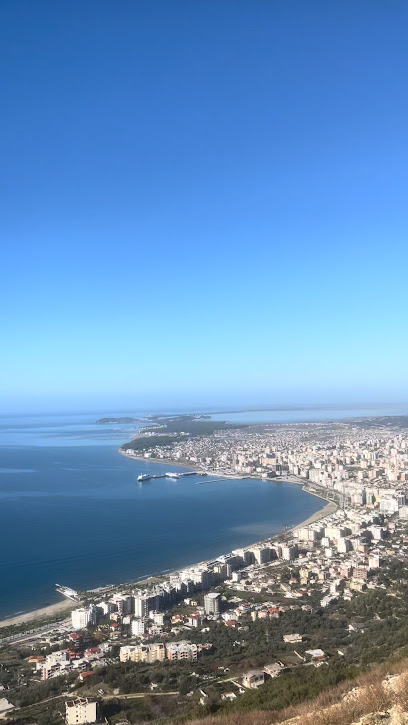
Vidikovac iznad Valone
Experience breathtaking panoramic views of Vlora and the Adriatic coastline from this must-visit scenic overlook.
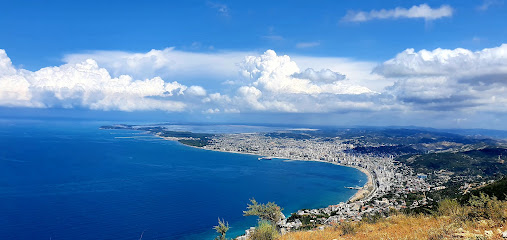
Bukowski Tours
Explore Gjirokastër's UNESCO heritage with immersive tours, unveiling history, culture, and stunning landscapes for an unforgettable Albanian adventure.
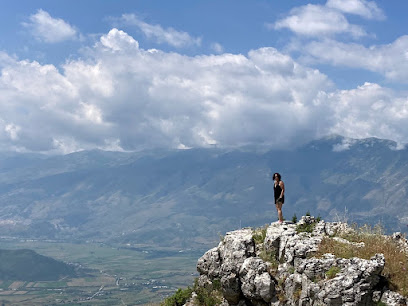
Essential places to dine
Panorama Restaurant LLOGARA
Experience exquisite dining with breathtaking views at Panorama Restaurant in Llogara - where culinary delights meet stunning landscapes.
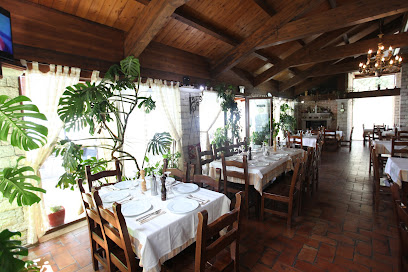
Panorama Restaurant
Experience breathtaking views and delightful flavors at Panorama Restaurant in Llogara, Albania – a must-visit culinary destination.
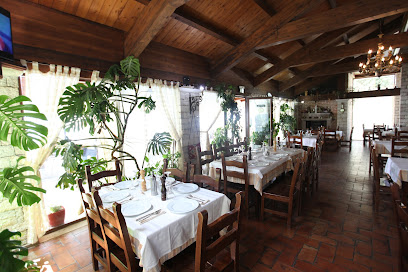
Bar Taverna Hibraj
Discover Bar Taverna Hibraj in Vlorë: A Culinary Haven with Stunning Views Offering Traditional Albanian Dishes & Refreshing Beverages.
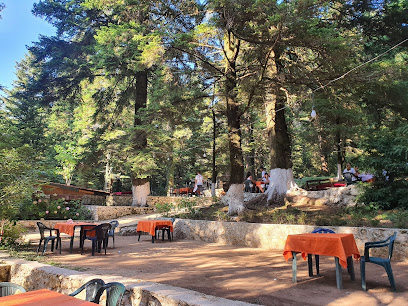
Hotel Restorant Alberti
Experience authentic Albanian hospitality at Hotel Restorant Alberti in Dukat, surrounded by breathtaking nature and delicious local cuisine.

Bar Restorant Dervishalliu
Experience authentic Albanian cuisine with breathtaking views at Bar Restorant Dervishalliu in Palasë.
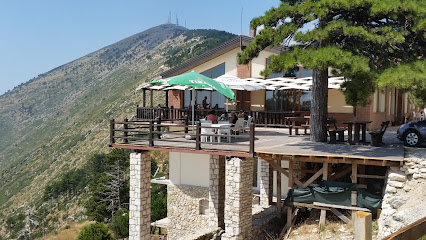
Mrizi i Pishave
Experience authentic Albanian flavors at Mrizi i Pishave – a culinary gem nestled in Dukat's stunning landscapes.
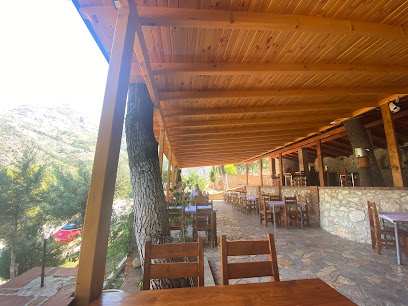
Restaurant Apollonia , llogora
Experience exquisite Albanian cuisine with stunning views at Restaurant Apollonia in Llogara - a must-visit culinary destination.
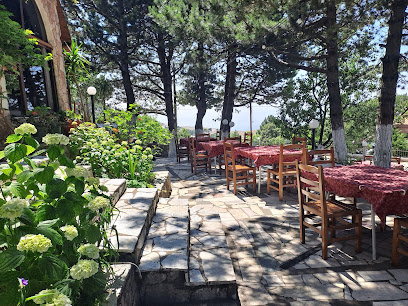
Restorant Iliria Llogora
Discover authentic Albanian cuisine amidst breathtaking views at Restorant Iliria in Llogora National Park.
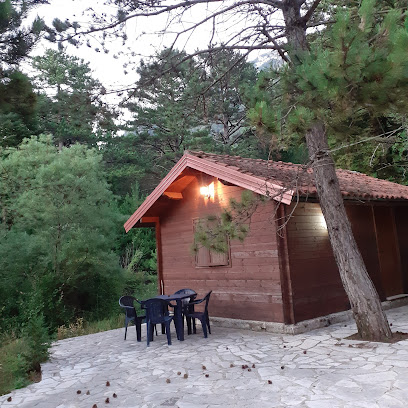
Aloni Restaurant
Discover authentic Albanian flavors at Aloni Restaurant in Dhërmi – where fresh seafood meets breathtaking Adriatic views.
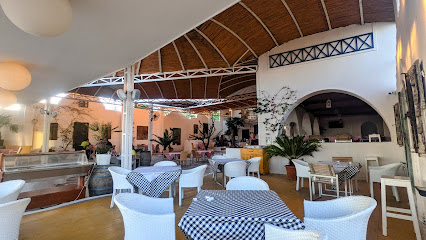
Agriturizem Dukat
Discover Agriturizem Dukat: A Culinary Haven in Vlorë Offering Authentic Albanian Cuisine Surrounded by Breathtaking Scenery.
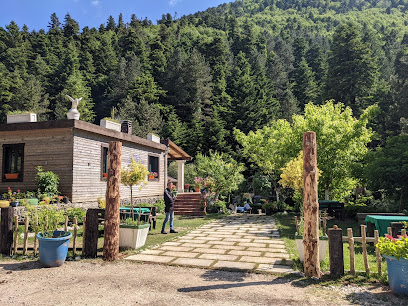
Restorant Uji i Panjës
Discover authentic Albanian cuisine amidst breathtaking landscapes at Restorant Uji i Panjës on SH8.
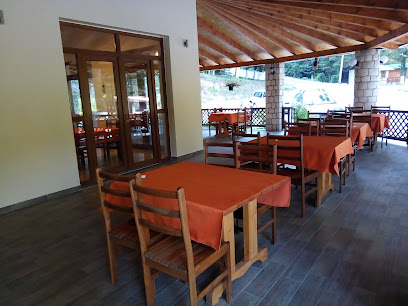
Restorant Bego
Experience authentic Albanian cuisine at Restorant Bego in Dukat – where tradition meets taste in every dish.
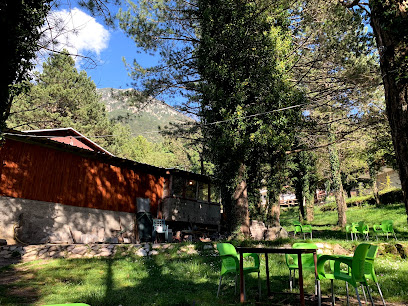
Restorant Sorkadhja
Discover authentic Albanian cuisine at Restorant Sorkadhja along SH8 - a delightful dining experience amidst stunning landscapes.
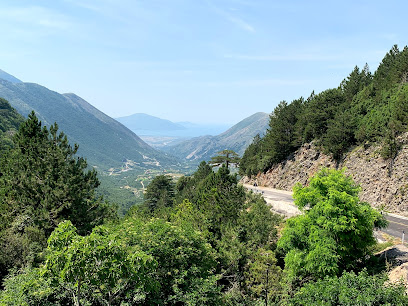
Andoni Restorant Llogora
Experience authentic Albanian cuisine amidst breathtaking views at Andoni Restaurant Llogora in Llogara National Park.
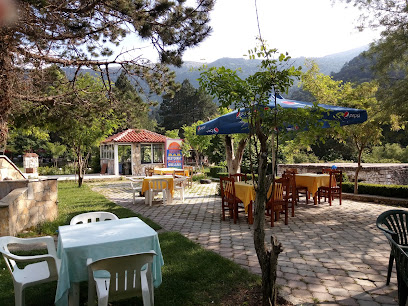
Restorant Noeli
Discover authentic Albanian flavors at Restorant Noeli along SH8 – where every meal tells a story amidst stunning scenery.
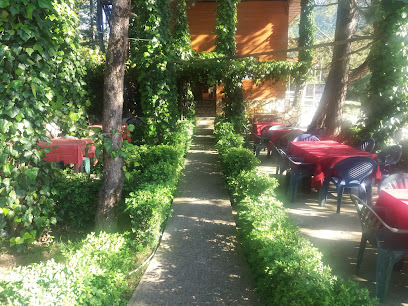
Markets, malls and hidden boutiques
Llogara National Park
Explore the stunning landscapes, diverse wildlife, and scenic trails of Llogara National Park, a gem of the Albanian Riviera.
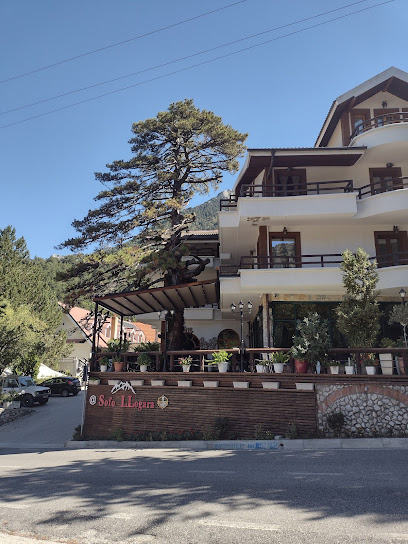
Panorama Llogara
Discover stunning panoramic views of the Albanian Riviera at Panorama Llogara, a breathtaking observation deck overlooking the Ionian Sea.
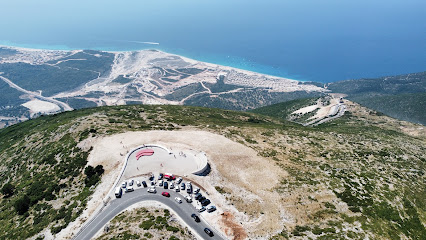
Llogora Tourist Village (TE’DRERI)
Experience the natural beauty and rich culture of Albania at Llogora Tourist Village, a perfect retreat for relaxation and adventure.
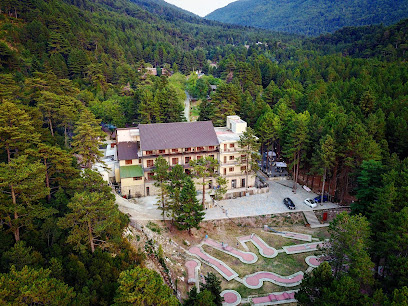
Paragliding Albania - Skysports Albania - Paragliding Llogara
Experience the breathtaking beauty of Llogara, Albania from above with thrilling paragliding adventures, ideal for nature lovers and thrill-seekers alike.
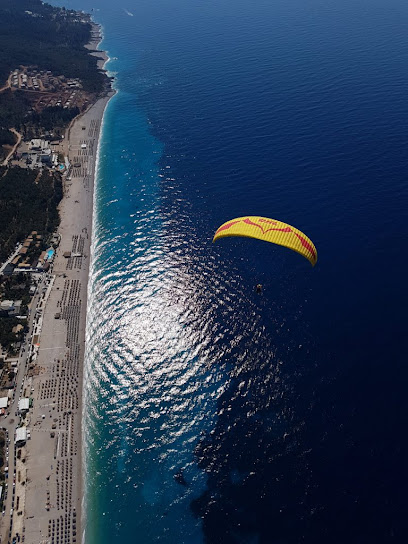
Market Neco
Explore Market Neco in Dhërmi, Albania for fresh produce and authentic local snacks, a true taste of Albanian culture.
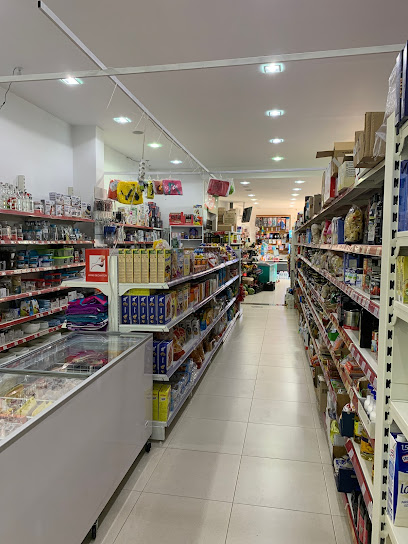
Market Martino
Discover the heart of local shopping at Market Martino, Dhërmi's premier grocery store offering fresh produce and local delights.
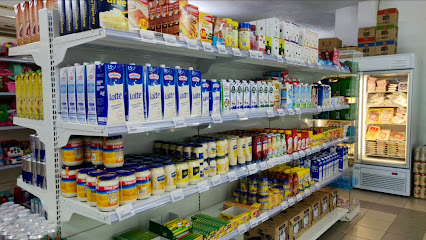
Market Llogorai
Explore the vibrant Market Llogorai in Orikum for a taste of authentic Albanian culture, local produce, and delicious traditional foods.
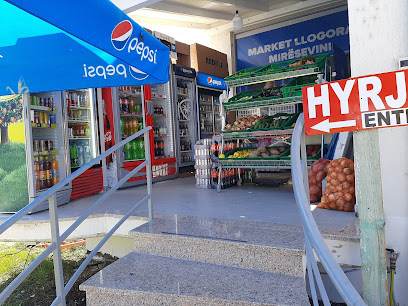
Llogara National Park Information Center
Explore the breathtaking Llogara National Park Information Center and embark on an unforgettable adventure in Albania's stunning landscapes.
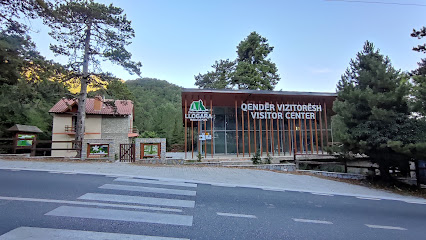
Market Gjikopulli
Discover authentic Albanian flavors and local culture at Market Gjikopulli in Dhërmi, a must-visit grocery store for every traveler.
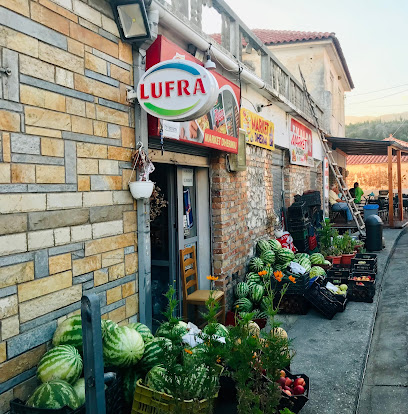
Market Enio Dhërmi
Explore the lively Market Enio Dhërmi for fresh produce, local crafts, and a taste of Albanian culture in beautiful Dhërmi.
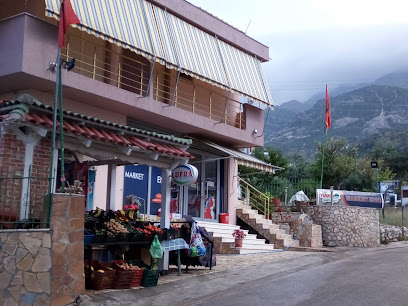
Pallati i Fierakeve
Explore unique home goods at Pallati i Fierakeve in Orikum, Albania, where local craftsmanship meets modern design.
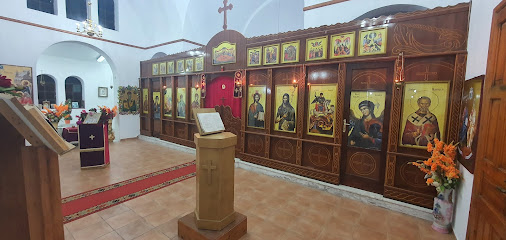
Tabacoo Shop
Explore the Tabacoo Shop in Dhërmi for an authentic cigar experience, rich aromas, and a cozy atmosphere nestled in stunning Albania.
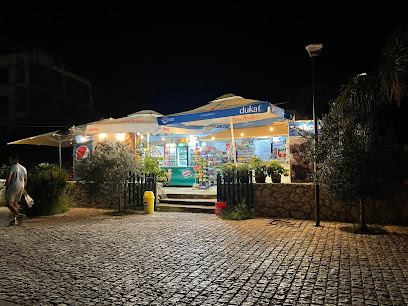
Tommy market
Tommy Market in Dhërmi: Your convenient stop for snacks, drinks, and essentials while enjoying Albania's stunning coastline.
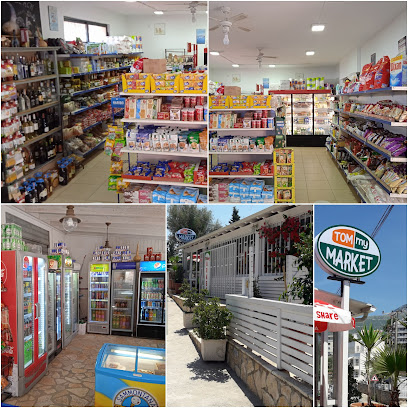
Tobacco shop 24h
Discover the 24-hour tobacco shop in Dhërmi, Albania, where quality meets convenience in a charming coastal setting.
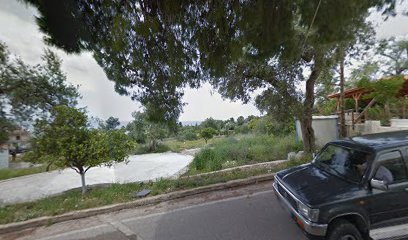
Market Vela e Bardhe
Explore authentic Albanian culture and flavors at Market Vela e Bardhe in Dhërmi, your one-stop supermarket for local delights.
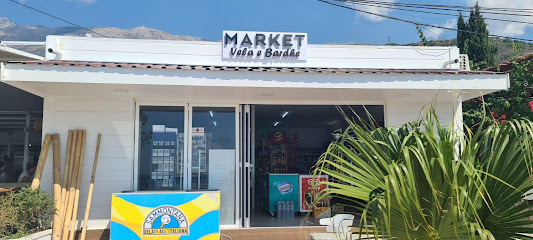
Essential bars & hidden hideouts
Llogora Tourist Village (TE’DRERI)
Experience the beauty and hospitality of Llogora Tourist Village in Albania, where relaxation meets adventure amidst stunning natural landscapes.
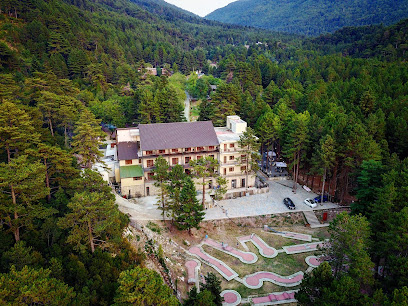
Panorama Restaurant
Discover the flavors of Albania at Panorama Restaurant, where stunning views and delicious cuisine unite for an unforgettable dining experience.
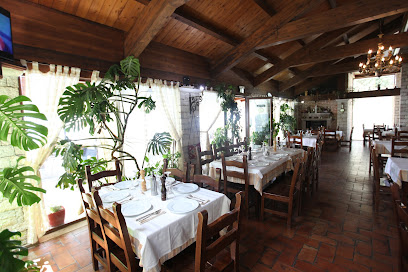
Bar Taverna Hibraj
Discover the vibrant atmosphere of Bar Taverna Hibraj in Vlorë, where delicious cuisine meets stunning Adriatic views in a welcoming setting.
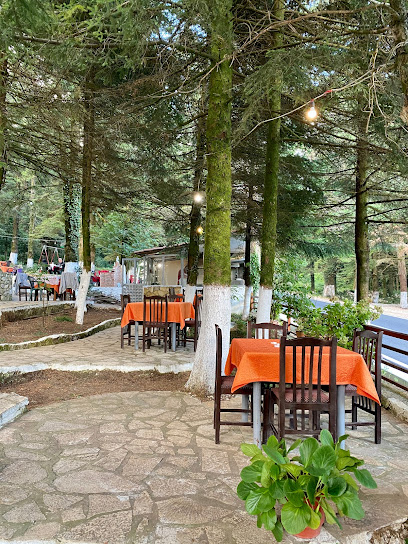
Bar Piceri Çipa
Explore Bar Piceri Çipa in Vlorë, Albania: A family-friendly haven with delightful local cuisine and stunning natural views.
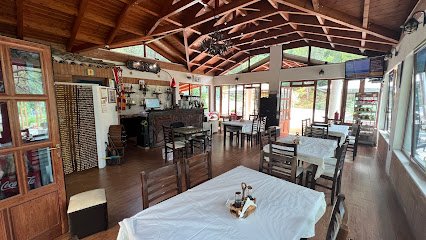
Bar Restorant Dervishalliu
Experience the best of Albanian cuisine at Bar Restorant Dervishalliu in Palasë, where stunning views meet mouthwatering local dishes.
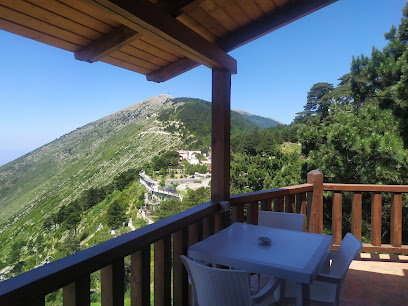
Restaurant Apollonia , llogora
Discover the flavors of Albania at Restaurant Apollonia, where stunning views and delicious cuisine create an unforgettable dining experience.
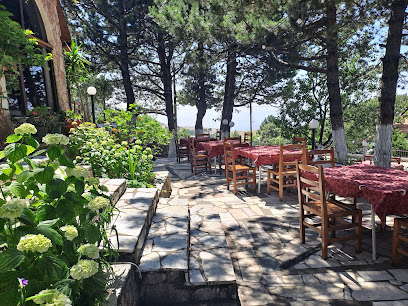
Noli's Drink
Discover Noli's Drink, a vibrant cocktail bar in Dhërmi, Albania, where exquisite drinks meet stunning beach views for an unforgettable experience.
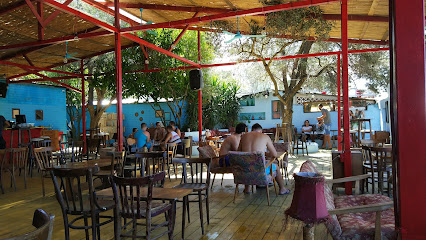
Restorant Bego
Experience authentic Albanian cuisine at Restorant Bego in Dukat, where traditional flavors and warm hospitality create an unforgettable dining experience.
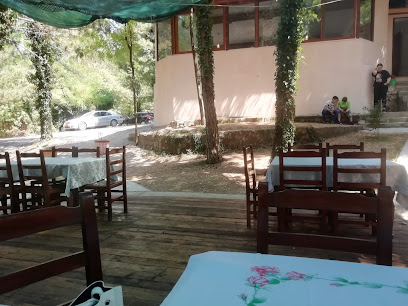
Bacarò Beach Bar
Experience the vibrant atmosphere and stunning views at Bacarò Beach Bar, the perfect coastal retreat in Dhërmi, Albania.
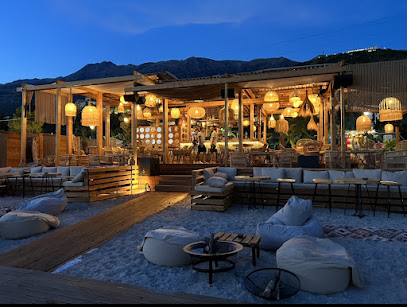
Andoni Restorant Llogora
Experience authentic Albanian cuisine at Andoni Restaurant Llogora, set against the stunning backdrop of Llogara National Park.
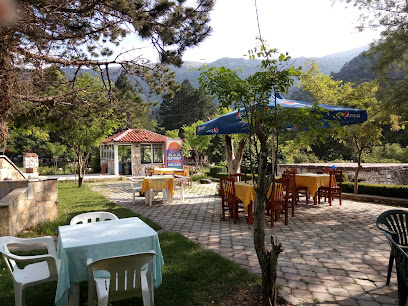
Freskia
Experience the flavors of Albania at Freskia, a stunning restaurant located in Llogara National Park, surrounded by breathtaking views and nature.
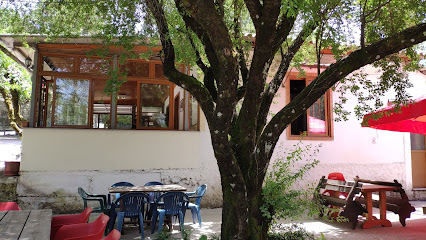
Restorant Noeli
Discover authentic Albanian cuisine at Restaurant Noeli, where local flavors meet breathtaking views along the scenic SH8.
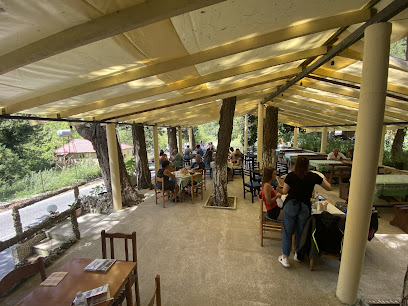
Taverna Semi
Discover Taverna Semi: A family-friendly restaurant in Llogara, Albania, serving authentic Albanian cuisine with breathtaking views.
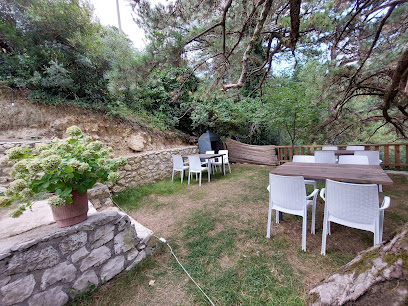
360 Sunset Bar Drymades
Discover breathtaking Adriatic sunsets and delightful cocktails at 360 Sunset Bar Drymades, a must-visit destination on Albania's stunning coast.
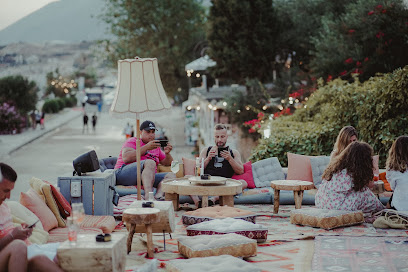
Local Phrases about Llogara National Park
-
- HelloPërshëndetje
[per-shen-de-tye] - GoodbyeMirupafshim
[meer-oo-paf-sheem] - YesPo
[po] - NoJo
[yo] - Please/You're welcomeJu lutem
[yoo loo-tem] - Thank youFaleminderit
[fa-le-min-de-reet] - Excuse me/SorryMë falni
[muh fal-nee] - How are you?Si jeni?
[see yeh-nee] - Fine. And you?Mirë. Dhe ju?
[meer. dhe yoo] - Do you speak English?Flisni anglisht?
[flee-nee ahn-gleesht] - I don't understandNuk kuptoj
[nook kooptoy]
- HelloPërshëndetje
-
- I'd like to see the menu, pleaseDo të doja të shikoja menunë, ju lutem
[daw tuh doh-ya tuh shee-koy-ah meh-noo-neh yoo loo-tem] - I don't eat meatNuk ha mish
[nook hah meesh] - Cheers!Gëzuar!
[guh-zoo-ar] - I would like to pay, pleaseDo të doja të paguaja, ju lutem
[daw tuh doh-ya tuh pah-gwah-yah yoo loo-tem]
- I'd like to see the menu, pleaseDo të doja të shikoja menunë, ju lutem
-
- Help!Ndihmë!
[n-dheem] - Go away!Largohu!
[lar-go-hoo] - Call the Police!Thirrni policin!
[theer-nee po-lee-tseen] - Call a doctor!Thirrni një doktor!
[theer-nee nyuh dohk-tor] - I'm lostJam humbur
[yam hoom-boo] - I'm illJam i sëmurë
[yam ee sa-moo-reh]
- Help!Ndihmë!
-
- I'd like to buy...Do të doja të blija...
[daw tuh doh-ya tuh bleeya] - I'm just lookingPo shikoj vetëm
[po shee-koy vet-em] - How much is it?Sa kushton?
[sah koosh-ton] - That's too expensiveKjo është shumë e shtrenjtë
[kyo esh-teh shoo-muh eh shtren-jteh] - Can you lower the price?A mund të ulni çmimin?
[ah moon-d tuh ool-nee chmee-meen]
- I'd like to buy...Do të doja të blija...
-
- What time is it?Sa është ora?
[sah esh-teh oh-rah] - It's one o'clockËshtë ora një
[esh-teh oh-rah nyuh] - Half past (10)Njëzet e gjysmë
[nyuh-zet eh jy-sme] - MorningMëngjes
[muhn-jes] - AfternoonPasdite
[pahs-dee-teh] - EveningMbrëmje
[mbruhm-yeh] - YesterdayDje
[djeh] - TodaySot
[soht] - TomorrowNesër
[neh-ser] - 1Një
[nyuh] - 2Dy
[duh] - 3Tre
[treh] - 4Katër
[ka-ter] - 5Pesë
[peh-seh] - 6Gjashtë
[gyasht] - 7Shtatë
[shta-teh] - 8Tetë
[teh-teh] - 9Njëzet
[nyuh-zet] - 10Dhjetë
[dhye-teh]
- What time is it?Sa është ora?
-
- Where's a/the...?Ku është një/...?
[koo eh-shte nyuh/...?] - What's the address?Çfarë është adresa?
[chfa-reh esh-teh ah-dreh-sah?] - Can you show me (on the map)?A mund të më tregoni (në hartë)?
[ah moon-d tuh muh troh-goh-nee (nuh har-teh)] - When's the next (bus)?Kur është autobusi tjetër?
[koor esh-teh ow-toh-boo-see tyet-er] - A ticket (to ....)Një biletë (në ....)
[nyuh bee-leh-teh (nuh ....)]
- Where's a/the...?Ku është një/...?
History of Llogara National Park
-
Llogara National Park is steeped in ancient history, with evidence of early Illyrian tribes inhabiting the region. These tribes, known for their warrior culture, utilized the natural trails through the Llogara Pass to navigate the landscape, leaving behind artifacts that provide a glimpse into their way of life.
-
Llogara Pass has long been a strategic route through the Ceraunian Mountains, connecting the coast to the interior of Albania. Historically, it served as a crucial passage for armies, traders, and travelers. Its importance is highlighted during the Roman Empire when it was part of the vital Via Egnatia road network, facilitating movement and trade across the region.
-
In 48 BC, during the Roman Civil War, Julius Caesar's legions famously traversed the challenging terrain of Llogara Pass. This daring maneuver allowed Caesar to surprise his adversary, Pompey the Great, who was stationed in nearby Dyrrachium (modern-day Durrës). The pass's treacherous conditions played a pivotal role in the strategic movements of the Roman forces.
-
During the medieval period, the Llogara region saw the construction of several fortifications. These structures, built by Byzantine and later Ottoman rulers, were intended to control the vital pass and protect against invading forces. The remnants of these fortifications offer a window into the military strategies and architectural prowess of the era.
-
Under Ottoman rule, the Llogara Pass continued to be of strategic importance. The Ottomans maintained and enhanced the routes through the mountains, ensuring efficient control over the region. The cultural influence of the Ottomans is evident in the local architecture, cuisine, and traditions that have been preserved in the surrounding villages.
-
During World War II, the rugged terrain of Llogara National Park became a hideout for Albanian partisans fighting against Axis forces. The dense forests and high altitudes provided a natural refuge for resistance fighters, who conducted guerrilla operations and disrupted enemy supply lines, playing a crucial role in the broader resistance movement.
-
In the post-war period, Llogara National Park was established to protect its unique biodiversity and natural beauty. Efforts were made to preserve the park's flora and fauna while promoting eco-tourism. The park's development has been instrumental in preserving the region's ecological integrity and promoting sustainable tourism practices.
Llogara National Park Essentials
-
Llogara National Park is located in the southwestern part of Albania. The nearest major city is Vlorë, about 40 kilometers away. The closest airport is Tirana International Airport (Nënë Tereza), around 140 kilometers from the park. From Tirana, you can rent a car or take a bus to Vlorë and then continue to Llogara National Park. The drive from Tirana takes approximately 2.5 to 3 hours. Alternatively, you can take a bus from Tirana to Vlorë and then a taxi or local bus to the park.
-
Within Llogara National Park, the best way to get around is by car. Renting a car provides flexibility to explore at your own pace. For those who prefer not to drive, local taxis are available, and some hotels offer shuttle services to popular hiking trails and viewpoints. Public buses run between Vlorë and the park, but schedules can be infrequent, so it's wise to check times in advance.
-
The official currency in Albania is the Albanian Lek (ALL). Credit cards are accepted in some hotels and restaurants, but it's best to carry cash, especially when visiting rural areas and small establishments. ATMs are available in Vlorë and some other larger towns, so it’s advisable to withdraw cash before heading into the park.
-
Llogara National Park is generally a safe destination for tourists. However, standard travel precautions should be taken. Avoid hiking alone in remote areas and always inform someone of your plans. The area does not have high crime rates targeting tourists, but it is still wise to keep an eye on your belongings and avoid leaving valuables unattended.
-
In case of an emergency, dial 112 for immediate assistance. The nearest medical facilities are located in Vlorë, so having travel insurance that covers medical emergencies is recommended. For minor health issues, there are pharmacies in Vlorë where you can purchase over-the-counter medications.
-
Fashion: Do wear comfortable and appropriate hiking gear, including sturdy shoes. Avoid wearing overly revealing clothing. Religion: Do respect local customs and traditions, especially in nearby villages. Public Transport: Do be respectful and give up your seat to elderly passengers. Greetings: Do greet people with a handshake and a smile. Eating & Drinking: Do try local delicacies like lamb and traditional Albanian dishes. Don’t refuse hospitality, as it is considered impolite.
-
To experience Llogara National Park like a local, visit the local eateries and try the traditional lamb dishes that the area is famous for. Engage with locals, as they are often friendly and willing to share stories about the park’s history and legends. Don’t miss the Caesar's Pass, a historical site where Julius Caesar once camped. For the best views, hike up to the Llogara Pass, which offers stunning panoramas of the Ionian Sea.
Trending Landmarks in Llogara National Park
Nearby Cities to Llogara National Park
-
Things To Do in Tepelenë
-
Things To Do in Gjirokastër
-
Things To Do in Patos
-
Things To Do in Saranda
-
Things To Do in Berat
-
Things To Do in Corfu
-
Things To Do in Kavajë
-
Things To Do in Pogradec
-
Things To Do in Durres
-
Things To Do in Tirana
-
Things To Do in Ioannina
-
Things To Do in Krujë
-
Things To Do in Lezhë
-
Things To Do in Meteora
-
Things To Do in Ulcinj







